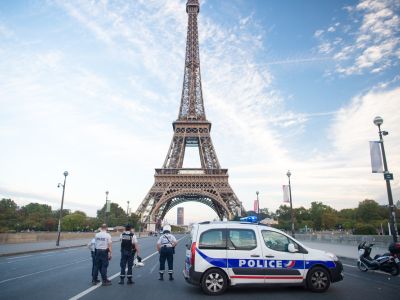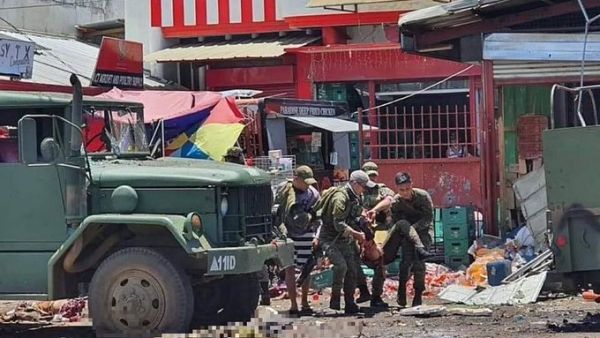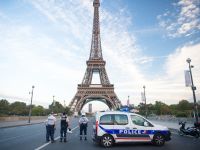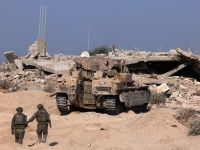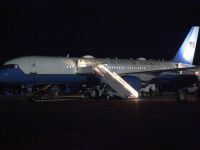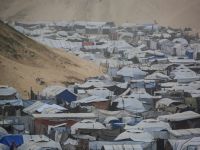Suspected militants have set off powerful bombs in a southern Philippine town despite extra tight security because of threats of attacks by Daesh group-aligned militants.
Monday's twin bomb attacks in Jolo killed at least 10 and wounded dozens of others, military officials said.
Most of the victims were military and police personnel, with some civilians.
The island in Sulu province is a stronghold of the terrorist group Abu Sayyaf, which pledged allegiance to Daesh.
Regional military commander Lieutenant General Corleto Vinluan said at least five soldiers and four civilians were killed in the first attack when a bomb attached to a motorbike exploded at noon near two parked army trucks in front of a grocery and a computer shop in Jolo town in Sulu province.
“It was a vehicle-borne improvised explosive device which exploded while our soldiers were on a marketing run,” Vinluan told reporters.
A second blast nearby, apparently from a female suicide attacker, occurred about an hour later and killed the bomber and a soldier, Vinluan and other officials said.
“A soldier was checking on somebody then there was another explosion,” Vinluan said.
A third unexploded bomb was reportedly found in a public market. Jolo was immediately placed in a security lockdown by troops and police.
Nearly 40 soldiers, police and civilians were wounded in the bomb attacks, military and police officials said.
Both bombs are believed to be homemade and were triggered within an hour of each other in the main urban centre.
It was the biggest attack in the town since January 2019, when twin suicide bombings before Sunday service at a Jolo church killed more than 20 people and wounded at least 100.
The first bombing was carried out near a town plaza and a Roman Catholic cathedral in the predominantly Muslim province. The country’s southern region is home to minority Muslims in the largely Roman Catholic nation and has been the scene of decades of separatist unrest, particularly in far-flung island provinces like Jolo.
There was no immediate claim of responsibility for the attack, but the military blamed an Abu Sayyaf militant commander, Mundi Sawadjaan, for the bombings.
The military has been waging a months-long offensive against the Abu Sayyaf, a small but violent terror group aligned with radical insurgencies and blacklisted by the US and Philippines for past bombings, ransom kidnappings and beheadings.
The number of its armed fighters have dwindled to a few hundred in recent years due to battle setbacks and surrenders, including a key commander, Abduljihad Susukan, who gave up to authorities two weeks ago after being wounded in battle.
Susukan has been blamed for kidnappings and beheadings of hostages, including foreign tourists, and surrenders through a Muslim rebel chief, which has signed a peace deal and was cooperating with the government.
He is now in police custody and faces multiple murder charges.
This article has been adapted from its original source.


